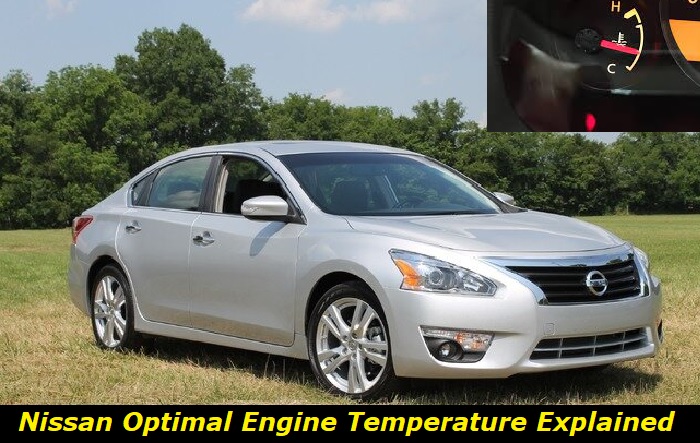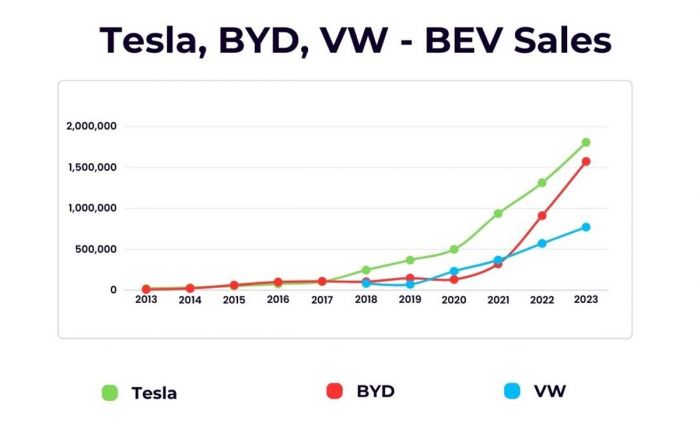The optimal working engine temperature in your Nissan is between 180 and 200 Fahrenheit of 80 and 93 degrees Celsius. This is the optimal range for good fuel economy, minimal engine wear, and the most efficient work of the vehicle in general. And unless something is broken in your car, this temperature range should be maintained automatically.
Cooling system problems highlights
- Level of urgency: high
- Common reasons: bad antifreeze, broken cooling equipment, leaks
- DIY diagnostics: very complicated
- DIY repair: impossible
- Price of repair: $250 - $650
- Time for repair: 3 - 8 hours
- If ignored: engine overheating and failure

Why is operating temperature important for your Nissan?
Under normal conditions, your Nissan will warm up for about 5-7 minutes and the needle of the engine temperature gauge will freeze at about half of its way. This is exactly 200 degrees F or 90-93 degrees Celsius. This temperature is optimal for proper engine operation.
It means that this temperature is OK for all engine parts and is considered the best in terms of fuel efficiency and other factors. Also, the thermostat fully opens at this temperature and then controls the possible low-temp conditions to close partially and let the engine keep the temperature at this point.
Here's why keeping this temperature is good:
- all parts of the engine are working in the best possible conditions;
- nothing is struggling to cope with extra heat;
- engine wear is minimal, this allows you to drive the vehicle longer;
- your fuel efficiency is at the best possible level;
- lubrication is perfect, the oil is working properly;
- all other functions like climate control in winter work well.
Now, let's imagine your engine temperature gauge shows something much higher than it's expected to show. This means that the engine is not completely in perfect condition and several bad things may happen.
For example:
- oil becomes too thin and doesn't lubricate the engine properly;
- thermostat overheats and can get stuck;
- properties of the coolant may change, it will not be that efficient;
- overheated parts may start scratching each other;
- the engine may even get stuck if the situation is getting worse.
An overheated engine can eventually crack, the head gasket may fail, and it may start leaking fluids all over the engine bay and also inside. This is one of the most common reasons for complete engine failure.
It's much less dangerous when the engine works in lower temperatures and can't warm up to the optimal working level. But this can also bring its problems:
- very poor fuel efficiency;
- high idle - the ECU will try to heat up the engine;
- engine wear due to cold parts;
- issues with EGR and catalytic converters.
Although low engine temperature in your Nissan won't kill it immediately, it also affects the durability of the engine and can eventually kill your car.
So, whatever kinds of deviations in the engine operation temperature your car has, it's extremely important to deal with them.
What should be considered overheating for a Nissan engine?
Anything higher than 220 degrees Fahrenheit is considered overheating in almost any Nissan engine. The rule of thumb: if you see the engine temperature gauge showing anything higher than the middle mark, you should stop the car and think of what can cause it and how to deal with it. Driving your vehicle in this condition is not recommended. At least, you will need to wait for some time.
Overheating is one of the primary reasons for engine failure. The head gasket will be the first candidate for problems. If you keep driving and the temperature will rise, the head will eventually crack.
Unfortunately, modern engines are very sensitive to overheating. But it doesn't mean that if you have one of those bulletproof old engines, you can easily drive with the temperature gauge showing some anomalies. No, they will also fail, just will take you a little further.
Be careful with overheating. It may be caused by many things like low coolant levels or problematic thermostat. It may lead to engine death even if this is just the new engine that only has several thousand miles on it.
Why may your Nissan engine be too cold at all times?
When the engine is cold and the temperature gauge never goes up to the optimal operating temperature, things are not that good. Your fuel will not be burnt efficiently. You will get high consumption and also potential problems with emission control equipment. Part of your fuel will get to the exhaust system and will burn or explode there leading to serious consequences.
The primary reason for this issue is the thermostat stuck open. This is a pretty common problem for Nissan engines and it can eventually lead to engine damage and other issues. Also, you will not be able to use the heater in your car in winter. However long you drive, the engine will not warm the coolant enough to let you comfortably control the temperature inside your vehicle.
Here's how you can test if your thermostat is stuck open:
- wait till the engine is completely cold (better do this test in the morning);
- start the car and apply the parking brake to avoid problems;
- open the hood and locate the main radiator in the front part of the vehicle;
- use your hand to see if the radiator is getting warmer right after you start the engine;
- it should remain cold up until the engine is completely warmed up;
- if the radiator is getting warm right away, the thermostat is open and needs to be replaced.
This is basically the only possible reason why your Nissan engine may not be warming up properly. But sometimes, the problem is that you just don't drive long enough. The engine will warm up for 5-7 minutes in summer and for 10-12 minutes in winter.
If your drives are short and the average distances aren't that long, you will not heat up the engine properly. This way, you'll be using more fuel to drive and the engine will not say thanks to you, in the end. Buying a PHEV or an electric vehicle for such rides is a good option.
So, when the needle in your temperature gauge can't go up to the optimal working temperature, you shouldn't ignore the issue. In most cases, your thermostat will need replacement.
What to do if the engine temperature in your Nissan is not optimal?
Well, you can ask if you can keep driving this car. The answer is no, it's not safe to ignore the issue. But you can drive to the dealership or repair shop on your own. In the case with low engine temperature, it's relatively safe, so you can drive. But in the case with high temperatures, you will need to follow several tips:
- stop your vehicle in a safe place and let the engine cool down;
- then keep driving until you see that the needle in the temperature gauge is 10% higher than optimal;
- stop the vehicle again and let the engine cool down;
- to make the cooling down faster, you may open the hood to let air flow through the engine bay.
This will help you get to the dealership or the chosen shop without killing your engine. Of course, you should pay attention to the gauge and follow the movement of the needle. Once you lose your control, the engine may fatally overheat.
So, here's what you will need to do when you eventually get to the dealer or to your trusted mechanic:
- explain all the conditions of your car and tell the mechanic as many details as you can remember;
- ask for proper engine cooling system inspection - it may cost you extra dollars, but this is the key step;
- after that, make sure the diagnosis is proper and pay for the repair;
- it's important to test drive your car after that and make sure that everything works well.
While in some vehicles replacing a thermostat or even a water pump may not be a complicated task, in the majority of Nissan engines, this will take some time. Obviously, this will affect the labor prices, so the repair will not be cheap.
Final thoughts
Any anomalies with your Nissan engine temperature are bad. Don't drive your vehicle if it overheats or can't reach the optimal temperature. Both conditions are potentially unpleasant and can lead to all kinds of problems with the engine including its fatal damage.
It's worth going to a good mechanic right after you spot this problem. Otherwise, your Nissan may require engine replacement after several weeks or even days.
About the authors
The CarAraC research team is composed of seasoned auto mechanics and automotive industry professionals, including individuals with advanced degrees and certifications in their field. Our team members boast prestigious credentials, reflecting their extensive knowledge and skills. These qualifications include: IMI: Institute of the Motor Industry, ASE-Certified Master Automobile Technicians; Coventry University, Graduate of MA in Automotive Journalism; Politecnico di Torino, Italy, MS Automotive Engineering; Ss. Cyril and Methodius University in Skopje, Mechanical University in Skopje; TOC Automotive College; DHA Suffa University, Department of Mechanical Engineering






Add comment